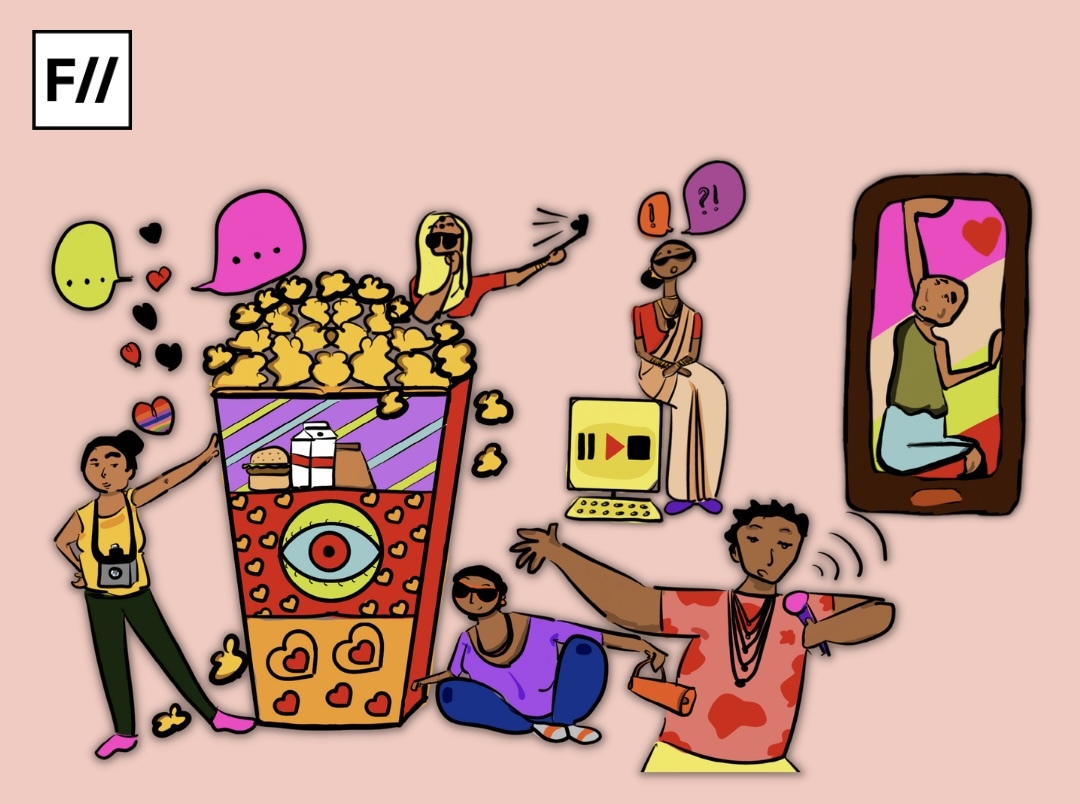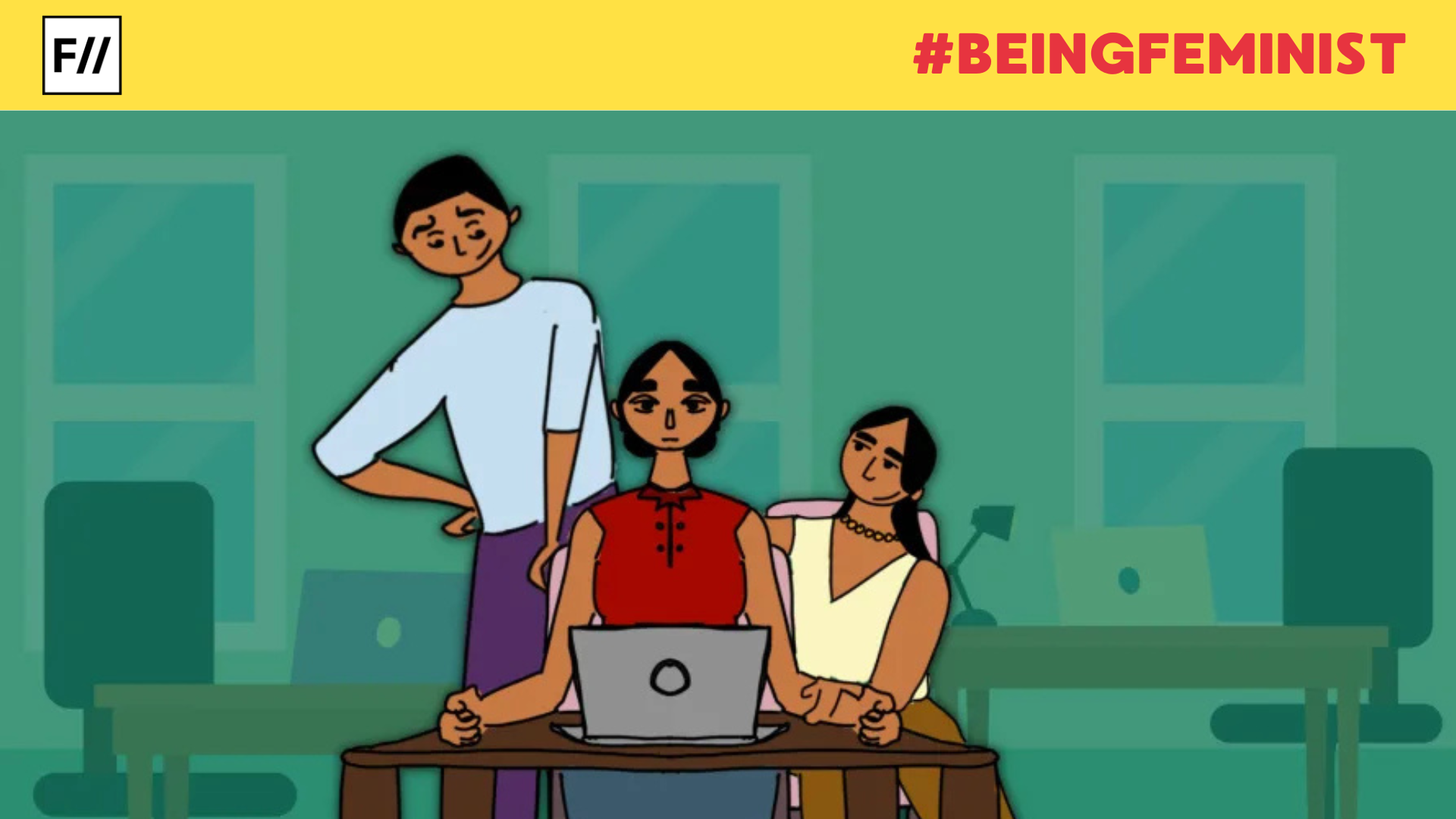Posted by Pranoti Monde
Bringing to you some exemplary stories of personal struggles, challenges and victories of change makers – the primary healthcare nurses at AMRIT Clinics. These are stories of women from rural communities, who are breaking stereotypes, redefining the role of ‘nurses’ and transforming healthcare in the last mile communities.
I always perceived nurses as bedside supervisors in white at the hospitals. Their role is more or less seen in a similar fashion everywhere, of a supporting staff to the doctors. This image in my head got shattered when I met and saw the nursing staff at AMRIT clinics. Here, the nurses are trying to address the issues we are facing because of the dearth of doctors and their unavailability in rural areas. These nurses stay in the villages 24*7 with the people. They make primary healthcare services available as efficiently as doctors and are able to communicate more effectively in the local dialect as they belong to the same community. They work relentlessly towards providing services, counselling patients and referring them secondary or tertiary care centers when needed, after consulting the same with doctors.
These extraordinary women who are game changers in their own ways.
1. Urmila Kalasua: A senior Primary Healthcare nurse at Amrit Clinic, Manpur
“My mother often complains that I care more about my patients than my own family. She says that whenever she calls me, most of the time, I am attending to my patients. All this makes my family feel like I don’t think about them or that work is a bigger priority for me. How do I make them understand that all these efforts are only for them and the work itself makes me happy!
The nurses make primary healthcare services available as efficiently as doctors and are able to communicate more effectively in the local dialect as they belong to the same community.
We see little kids recovering from the grasps of malnutrition and looking much healthier. That feels great. Our village faces a huge water crisis. This basic necessity has become a scarce commodity. When I realized the gravity of the situation, I had made my resolute that something had to be done. A while after I started working, I used my saved earnings to dig a bore-well near my house. As a result, a lot of my family’s time and effort has reduced. My next goal is to save for my brother’s education so that he can turn his dreams into reality, like I did.”
2. Rekha Kharadi: A Primary Healthcare nurse at Amrit Clinic, Morwal
“I got married when I was in class 12th. Ours was a love marriage which also got approved by the family. We studied together and my husband has been a solid support to me throughout. After we got married, he encouraged me to pursue nursing while he worked at a shop to support my studies and to keep our house running. I was the class topper for all 3 years in college. Post that, I started working here at AMRIT clinics. My husband is now pursuing his studies in Ayurveda. Once he completes that, I want to go for post-nursing courses. We are taking turns to work towards our dreams. We have two beautiful kids, Dhruvi and Ruvi. Summer vacations are going on and Ruvi is here to stay with me at the clinic quarters. He is mischievous and loves to eat grapes.”
3. Ramila Meena: A senior Primary healthcare nurse at Amrit Clinic, Ghated
“We were travelling to a nearby hamlet for our ANC (Ante-natal care) session. In the bus, I saw a boy extremely malnourished, and with skin so pale that I could tell right away he was extremely anaemic. We went for our session but the image of that frail-looking boy kept coming back to my mind throughout the day. The next day, I made up my mind to find him at any cost. I had no information about him, but I was familiar with the school. On approaching the principal, I told him about what I had seen and expressed that I wanted to meet the boy. He was supportive. We scanned through all the classes from primary to secondary and left no stone unturned to find him. Finally, we saw him and took him to the clinic for a check-up.
His Hemoglobin level was at 2 g/dl when normally, it should be 13. Any further delay in his treatment meant severe risk to his life. We quickly informed his parents and counselled them to take him to Udaipur for a blood transfusion. They wasted no time. A life was saved that day.
Also read: In Conversation With Rola Yasmine: Women in Conflict Areas And Their Reproductive Rights
The boy regularly visits the clinic now, sometimes for a checkup and mostly just to meet us. The school authorities now invite us to all the school functions. They even felicitated me on Republic day, for my work. It was the first award that I’ve received for work.”
4. Chandrabhanu Soni: An ANM supervisor at Nithuawa, a Primary Health Centre (PHC) managed by Basic HealthCare Services in partnership with the government of Rajasthan.
“I was asked to leave my studies after class 8 and was married off at the age of 17. Life was going good; we had two beautiful children and I would stitch clothes to support my family. After 13 years of marriage, my husband, the sole earning member of the family, passed away. It felt like my world had come down crashing. But I had to take care of my two young kids. During these days of hardship, my parents supported and encouraged me to resume studies. With them on my side, I completed 12th and pursued Auxiliary Nurse Midwifery (ANM) nursing course.
During my final year, I was diagnosed with cancer. I still shiver thinking of that time. With my 2nd round of chemotherapy, my final year exams were going on. I decided to not give up. With determination, I prepared and passed the exams. There was no looking back after that. I worked for 2 years in Aspur as a Yashoda (caretaker of new-borns in a hospital). In 2015, I joined PHC Nithauwa as an ANM and have been working here since then. Apart from ANC, PNC (Post-natal care), family planning and immunisation services, I have supported the PHC in managing deliveries as well. In the Panchayat here, my team of ASHAs and I ensure that nobody remains deprived of any healthcare service, be it old or young, man or woman. I’ve received a district level award for all these years of working in the community.
5. Romi Jain: A nurse coordinator at Amrit Clinic, Bedawal
“I was the first girl to step outside my village in order to study. Fighting against all odds from listening to the taunts of people to no transport facilities to reach college, I have survived them all. Despite all these hardships, I managed to earn a diploma in General Nursing and Midwifery course. My success further encouraged my sisters and other girls in my village to go out and continue studying. In the last 3.5 years, while working as a nurse practitioner, I have conducted close to 150 deliveries.
Here, the nurses are trying to address the issues we are facing because of the dearth of doctors and their unavailability in rural areas.
The first time I had seen a baby getting delivered, I did not eat for two days. But over the years, I have grown to like it. The pain can get really intense. With each delivery that I witness, my respect for all mothers grows.
Also read: Gender Equality In The Healthcare Sector: How (Un)Fair Is The System?
Whenever I see children disobeying their mothers, I feel like pushing them into the delivery room to make them watch how much pain and exertion one goes through while giving birth. However, at the same time, to see a baby coming into this world is the most precious moment one can experience. Now there are children in my village named after me. Bedawal has 4 more girls called Romi.”
Pranoti Monde is an India Fellow, working with Basic Healthcare Services in Udaipur, Rajasthan where she interacts with people in local communities, especially the ones suffering from Tuberculosis, in order to create effective systems for organizational management. You can read more of her stories here.
About the author(s)
Guest Writers are writers who occasionally write on FII.




